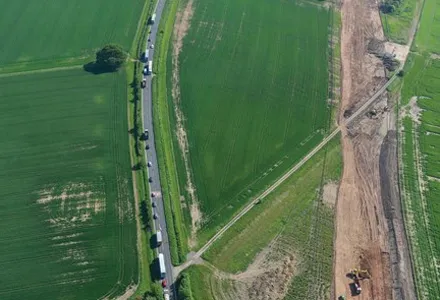The first ever contract to be awarded through the UK Government Procurement Service (formerly Buying Solutions) ‘Traffic Management Technology’ framework is for a SPECS3 average speed enforcement system, to be installed in Nottinghamshire.
March 15, 2012
Read time: 1 min
The first ever contract to be awarded through the UK Government Procurement Service (formerly Buying Solutions) ‘Traffic Management Technology’ framework is for a SPECS3 average speed enforcement system, to be installed in Nottinghamshire. The A614 in Nottinghamshire has a significant collision and casualty history, with 283 people killed or injured in the last five years. In summer 2011, average speed check cameras were identified as an appropriate measure to address collisions along this route.
3957 Vysionics ITS will be providing its SPECS3 average speed enforcement solution, which will be used to reduce collisions and casualties by controlling vehicle speeds over a 21km section of the A614.
The UK Government Procurement Service ‘Traffic Management Technology’ framework has been set up to reduce the complexity, cost and timescales associated with the purchase of traffic technology. Conventionally, a Local Authority would need to progress a formal OJEC process, which would require a substantial amount of work in progressing PQQ and ITT documentation and review. All companies represented on the TMT framework have already been through a rigorous capability assessment, allowing purchasers to bypass many of these hurdles.
The UK Government Procurement Service ‘Traffic Management Technology’ framework has been set up to reduce the complexity, cost and timescales associated with the purchase of traffic technology. Conventionally, a Local Authority would need to progress a formal OJEC process, which would require a substantial amount of work in progressing PQQ and ITT documentation and review. All companies represented on the TMT framework have already been through a rigorous capability assessment, allowing purchasers to bypass many of these hurdles.







